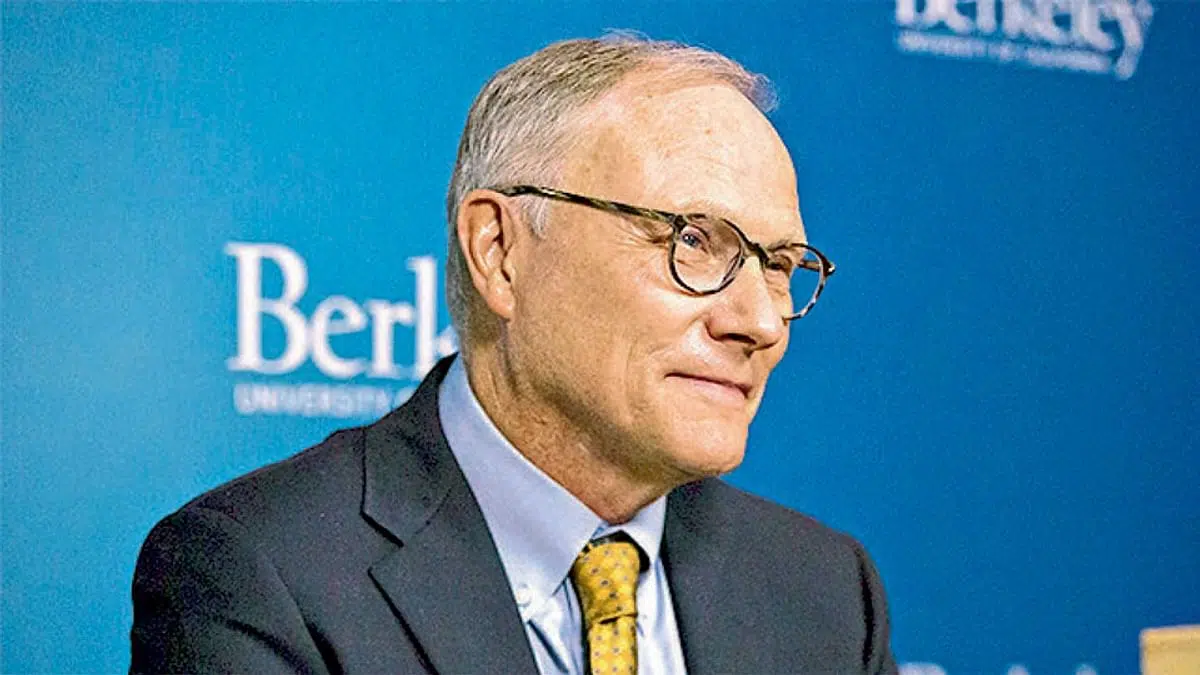David Card: Wiki, Bio, Age, Net Worth, Wife, Children, Family, Career, Early Life, Lifestyle, Height, Weight, Birthday: David Card is a professor of economics at the University of California, Berkeley, and the director of the National Bureau of Economic Research’s Labor Studies Program. His research interests include immigration, salaries, education, and labor market disparities based on gender and ethnicity. He co-edited The Handbook of Labor Economics (1999), Seeking a Premier Economy: The Economic Effects of British Economic Reforms, and Small Differences that Matter: Labor Markets and Income Maintenance in Canada and the United States, and co-authored Myth and Measurement: The New Economics of the Minimum Wage in 1995. In addition, he has over 125 journal papers and book chapters to his credit.

David Card Early Life
From 1991 to 1995, Card was a co-editor of Econometrica, and from 2002 to 2005, David Card was a co-editor of the American Economic Review. From 1983 until 1996, he was a professor at Princeton University, and he has also held visiting positions at Columbia, Harvard, and the Center for Advanced Study in the Behavioral Sciences. In 1995, he was awarded the American Economic Association’s John Bates Clark Prize, which is given every other year to an economist under the age of 40 whose work is deemed to have made the greatest contribution to the profession. In 2006, he was a co-recipient of the IZA Labor Economics Award, and in 2015, he received the BBVA Frontiers of Knowledge Prize, as well as the Frisch Medal from the Econometric Society.

David Card Academic Work
David Card gained notoriety in the early 1990s when he and his Princeton University colleague Alan B. Krueger discovered, according to commonly held assumptions among economists, that raising the minimum wage in New Jersey did not result in job losses at fast-food restaurants in the state. Many economists, including Joseph Stiglitz and Paul Krugman, accept Card and Krueger’s conclusions, despite the methodology (see the difference in differences) and claim (see minimum wage for discussion). David Card has also contributed significantly[peacock prose] to studies on immigration, education, job training, and inequality. Card’s work is largely concerned with comparing the United States and Canada in various scenarios. Card’s study on immigration has revealed that new immigrants have a negligible economic impact. The card has conducted many case studies on immigrant groups’ fast integration, concluding that it has little or no influence on earnings. Card, for example, looked at the economic consequences of the Mariel boatlift in Miami and compared them to the effects in Atlanta, Houston, Los Angeles, and Tampa, which had fewer Cuban immigrants.
Despite a 7 percent rise in low-skilled labor in Miami, Card discovered that earnings for low-skilled employees were not considerably influenced. Furthermore, he discovered that the rapid surge of immigrants had little effect on general unemployment rates or salaries in Miami’s labor market. The card stated in an interview with The New York Times, “The economic reasons [against immigration] are, in my opinion, second-class. They’re nearly unimportant.” This isn’t to say that Card thinks immigration should be expanded; it only means that immigrants aren’t a danger to the labor market.

Here is the full Bio/Wiki of David Card, his family/ mother/ father/ brother name, age, height in feet, weight, body measurements, interests/hobbies, girlfriends, wife, spouse, cars, property, bikes, address, email, house, hometown, ethnicity, hometown, birthplace, parents, achievements, phone number, school, his Twitter, Facebook, Instagram, earning /income/net worth, birthday, zodiac sign, education, caste, religion, Date Of Birth.
David Card Bio, Height, Weight, Profile, Caste, Net Worth
| Real Name | David Card | ||||
| Nickname | David | ||||
| Gender | Male | ||||
| Profession | professor of economics | ||||
| Height (approx.) | Not Known | ||||
| Weight (approx.) | Not Known | ||||
| Figure Measurements (approx.) | Not known | ||||
| Eye Colour | Light brown | ||||
| Hair Colour | gray | ||||
| Date of Birth | 1956 | ||||
| Age (as in 2018) | 65 years | ||||
| Birth Place | Not Known | ||||
| Zodiac sign/Sun sign | Not known | ||||
| Nationality | Not Known | ||||
| Hometown | Not known | ||||
| School | Not known | ||||
| College/University | Not Known | ||||
| Educational Qualification | Not known | ||||
| Religion | Not Known | ||||
| Ethnicity | Not known | ||||
| Caste | Not Known | ||||
| Address | Not Known | ||||
| Hobbies/Interests | Not Known | ||||
| Marital Status | Married | ||||
| Affairs/Boyfriends/Girlfriends | Not Known | ||||
| Sexuality | Straight | ||||
| Parents |
|
||||
| Siblings | Brother – Not known
Sister – Not known |
||||
| Husband/Wife/Spouse | Not Known | ||||
| Children | N/A | ||||
| Net Worth | $1 million |
Some lesser-known facts about David Card
- For his work on the minimum wage and the economic repercussions of the Mariel boatlift, he received the 1995 John Bates Clark Medal, which is given to “that American economist under the age of forty who is deemed to have made the most significant addition to economic thinking and knowledge.”
- He delivered the American Economic Association’s Richard T. Ely Lecture in San Francisco in 2009.
- The card was voted the fifth best living economist under the age of 60 in a 2011 poll of economics academics.
Social Media Accounts
Also read: Vishal Kotian
Subscribe to us to get the latest updates about David Card!
I am Anita Kantar, a seasoned content editor at Shantel. Outside of my dynamic role at Shantel, I am finding joy and fulfillment in a variety of activities that enrich my life and broaden my horizons. I enjoy immersing myself in literature and spending quality time with my loved ones. Also, with a passion for lifestyle, travel, and culinary arts, I bring you a unique blend of creativity and expertise to my work.

